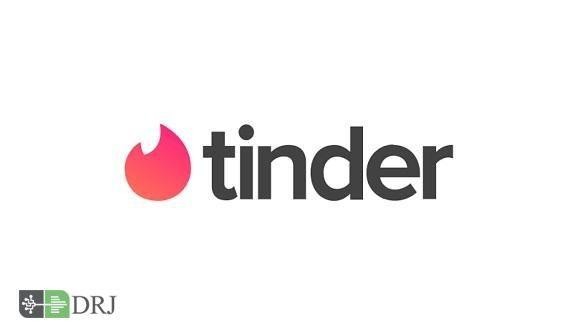A new report reveals the company’s plans to enter the Chinese search market. We’ve seen this movie before. But Android has changed the game, forcing profits over corporate values.

(Cross posted from Searchblog)
I’ve been covering Google’s rather tortured relationship with China for more than 15 years now. The company’s off again, on again approach to the Internet’s largest “untapped” market has proven vexing, but as today’s Intercept scoop informs us, it looks like Google has yielded to its own growth imperative, and will once again stand up its search services for the Chinese market. To wit:
GOOGLE IS PLANNING to launch a censored version of its search engine in China that will blacklist websites and search terms about human rights, democracy, religion, and peaceful protest, The Intercept can reveal.
The project — code-named Dragonfly — has been underway since spring of last year, and accelerated following a December 2017 meeting between Google’s CEO Sundar Pichai and a top Chinese government official, according to internal Google documents and people familiar with the plans.
If I’m reading story correctly, it looks like Google’s China plans, which were kept secret from nearly all of the company’s employees, were leaked to The Intercept by concerned members of Google’s internal “Dragonfly” team, one of whom was quoted:
“I’m against large companies and governments collaborating in the oppression of their people, and feel like transparency around what’s being done is in the public interest,” the source said, adding that they feared “what is done in China will become a template for many other nations.”
This news raises any number of issues — for Google, certainly, but given the US/China trade war, for anyone concerned with the future of free trade and open markets. And it revives an age old question about where the line is between “respecting the rule of law in markets where we operate,” a standard tech company response to doing business on foreign soil, and “enabling authoritarian rule,” which is pretty much what Google will be doing should it actually launch the Dragonfly app.
A bit of history. Google originally refused to play by China’s rules, and in my 2004 book, I reviewed the history, and gave the company props for taking a principled stand, and forsaking what could have been massive profits in the name of human rights. Then, in 2006, Google decided to enter the Chinese market, on government terms. Google took pains to explain its logic:
We ultimately reached our decision by asking ourselves which course would most effectively further Google’s mission to organize the world’s information and make it universally useful and accessible. Or, put simply: how can we provide the greatest access to information to the greatest number of people?
I didn’t buy that explanation then, and I don’t buy it now. Google is going into China for one reason, and one reason alone: Profits. As Google rolled out its service in 2006, I penned something of a rant, titled “Never Poke A Dragon While It’s Eating.” In it I wrote:
The Chinese own a shitload of our debt, and are consuming a shitload of the world’s export base of oil. As they consolidate their power, do you really believe they’re also planning parades for us? I’m pretty sure they’ll be celebrating decades of US policy that looked the other way while the oligarchy used our technology (and that includes our routers, databases, and consulting services) to meticulously undermine the very values which allowed us to create companies like Google in the first place. But those are not the kind of celebrations I’m guessing we’d be invited to.
So as I puzzle through this issue, understanding how in practical terms it’s really not sensible to expect that some GYMA pact is going to change the world (as much as I might wish it would), it really, honestly, comes down to one thing: The man in the White House.
Until the person leading this country values human rights over appeasement, and decides to lead on this issue, we’re never going to make any progress.
Google pulled out of China in 2010, using a China-backed hacking incident as its main rationale (remember that?!). The man in the White House was — well let’s just say he wasn’t Bush, nor Clinton, and he wasn’t Trump. In any case, the hacking incident inconveniently reminded Google that the Chinese government has no qualms about using data derived from Google services to target its own citizens.
Has the company forgotten that fact? One wonders. Back in 2010, I praised the company for standing up to China:
In this case, Google is again taking a leadership role, and the company is forcing China’s hand. While it’s a stretch to say the two things are directly connected, the seeming fact that China’s government was behind the intrusions has led Google to decide to stop censoring its results in China. This is politics at its finest, and it’s a very clear statement to China: We’re done playing the game your way.
Seems Google’s not done after all. Which is both sad, and utterly predictable. Sad, because in today’s political environment, we need our companies to lead on moral and human rights issues. And predictable, because Android has a massive hold on China’s internet market, and Google’s lack of a strong search play there threatens not only the company’s future growth in its core market, but its ability to leverage Android across all its services, just as it has in Europe and the United States.
Google so far has not made a statement on The Intercept’s story, though I imagine smoke is billowing out of some communications war room inside the company’s Mountain View headquarters. Will the company attempt some modified version of its 2006 justifications? I certainly hope not. This time, I’d counsel, the company should just tell the truth: Google is a public company that feels compelled to grow, regardless of whether that growth comes at a price to its founding values. Period, end of story.
I’ll end with another quote from that 2006 “Don’t Poke a Dragon” piece:
…companies like Yahoo and Google don’t traffic in sneakers, they traffic in the most powerful forces in human culture — expression. Knowledge. Ideas. The freedom of which we take as fundamental in this country, yet somehow, we seem to have forgotten its importance in the digital age — in China, one protesting email can land you in jail for 8 years, folks.
…Congress can call hearings, and beat up Yahoo, Google and the others for doing what everyone else is doing, but in the end, it’s not (Google’s) fault, nor, as much as I wish they’d take it on, is it even their problem. It’s our government’s problem….Since when is China policy somehow the job of private industry?
Until that government gives (the tech industry) a China policy it can align behind, well, they’ll never align, and the very foundation of our culture — free expression and privacy, will be imperiled.
After all, the Chinese leaders must be thinking, as they snack on our intellectual property, we’re only protecting our citizens in the name of national security.
Just like they do in the US, right?
Google’s Tortured Relationship with China Continues was originally published in NewCo Shift on Medium, where people are continuing the conversation by highlighting and responding to this story.

ایده ها برای استارت آپ موجب رونق کسب و کارهای اینترنتی
آینده / استارت آپ

استارتآپها ادبیات بازار سرمایه را بلدند؟
استارت آپ

صدور تاییدیه دانش بنیانی شتابدهنده صدر فردا
اخبار / استارت آپ

اپلیکیشن شارژاپ
گوناگون / استارت آپ / رپرتاژ آگهی / بازتاب

جذابترین ایدههای B2B در سال 2020
استارت آپ

تعریف استارت آپ startup
دانشنامه / استارت آپ / مقاله

۱۰ استارتاپ که بدون سرمایه به سوددهی رسیدند
استارت آپ

ایده ها و پیشنهاد برای استارت آپ در سال جدید
راهکارها و ترفند ها / استارت آپ

استارتآپ ایرانی؛ مرجع اول زنان افغان
استارت آپ

شروع یک کسب و کار نوپا پلتفرمی
استارت آپ

برنامه شبکه اجتماعی تیندر
گوناگون / معرفی وب سایت / استارت آپ

10 استارت آپ برتر تاکسیرانی جهان
استارت آپ

پخت پیتزاهای هیجان انگیز با هوش مصنوعی
آینده / استارت آپ

ایده های استارتاپی فراموش شده
دورنما / بازار / استارت آپ

اپل، استارتاپ فناوری خودران Drive.ai را تصاحب کرد
استارت آپ

بررسی مهمترین چالشهای تیمهای استارتاپی
استارت آپ

نگرانی کاربران از هزینه تعمیر و تامین قطعات
گفت و گو / بازار / استارت آپ

مصاحبه با مدیرعامل و بنیانگذار استارتاپ Moz
گفت و گو / استارت آپ

آشنایی با استارت آپ های حوزه مدیریت آب
استارت آپ

راه اندازی ۷۰ استارت آپ توسط نخبگان ایرانی
استارت آپ

معرفی هشت استارتآپ موفق ایرانی در حوزه فینتک
استارت آپ

اولین مرورگر شرعی دنیا
استارت آپ

از صفر تا پیست
استارت آپ

معرفی برترین استارتاپهای CES 2019
اخبار / استارت آپ

ازدواج با فرد ثروتمند یا خوش اخلاق
سبک زندگی / برترین ها

هدف از تشکیل خانواده چیست
سبک زندگی

اول عاشق شویم، بعد ازدواج کنیم
سبک زندگی

خانواده چیست
سبک زندگی

مشاوره خانواده چیست؟
سبک زندگی

اولویتهای پسانداز خانواده چیست؟
سبک زندگی

هزینه های خانواده چیست؟
سبک زندگی

راهکار بیشتر حرف زدن اعضای خانواده چیست؟
سبک زندگی

چرخه زندگی و خانواده چیست؟
سبک زندگی

اهداف و اصول تشکیل خانواده
سبک زندگی

آموزش جنسی نادرست به سبک خانم جلسه ای
سبک زندگی

لطفا تماشاچی آزار زنان نباشید!
سبک زندگی

کودک آزاری؛ از نشانهها و دلایل تا درمان
گزارش / سبک زندگی / پرورش کودکان

روش های تعیین هدف و مسیر زندگی برای رسیدن به موفقیت
سبک زندگی
مجله اینترنتی دیپروتد نشریه مجازی بر بستر اینترنت به مسائل آموزشی و مقالات پیرامون کسب وکار های نوپا یا استارت آپ ها و سبک زندگی است فعالیت و محتوای مطالب ارائه شده در سایت همه بیشتر در حوزه مدیریت، کارآفرینی ، روانشناسی ،اقتصادی و فناوری اطلاعات است نام اصلی دیپروتد "ریشه های عمیق " با مجوز رسمی از هیات نظارت برمطبوعات مشغول به فعالیت است
ما را در شبکه های اجتماعی دنبال کنید
تمامی حقوق برای سایت فوق محفوط است.
S-TECH: ایرانی توانمند | Powered by: مجله اینترنتی دیپروتد








